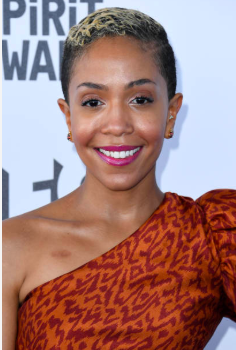
Zora Howard is having a moment. Premature, a film she co-wrote and stars in, is out today. At the same time Stew, a play she wrote but doesn’t star in, is playing Off Broadway. The two works are different but announce the emergence of a perceptive writer and a sensitive actor. Premature is a Harlem-based love story, the kind of languid gorgeous storytelling you want to cozy up with. While Stew is more confrontational and heartbreaking, both works are steeped in Howard’s memory and experiences.
Premature is directed by Rashaad Ernesto Green who co-wrote with Howard, and tells the story of 17 year old poet Ayanna (Howard) and her passionate summer romance with a charming music producer Isaiah (Joshua Boone). The film announces Howard as an actor to watch, we said as much when we saw it at last year’s Sundance. We recently met with Howard in New York and started our conversation with her double moment on film and stage. [This interview has been edited and condensed for clarity.]...
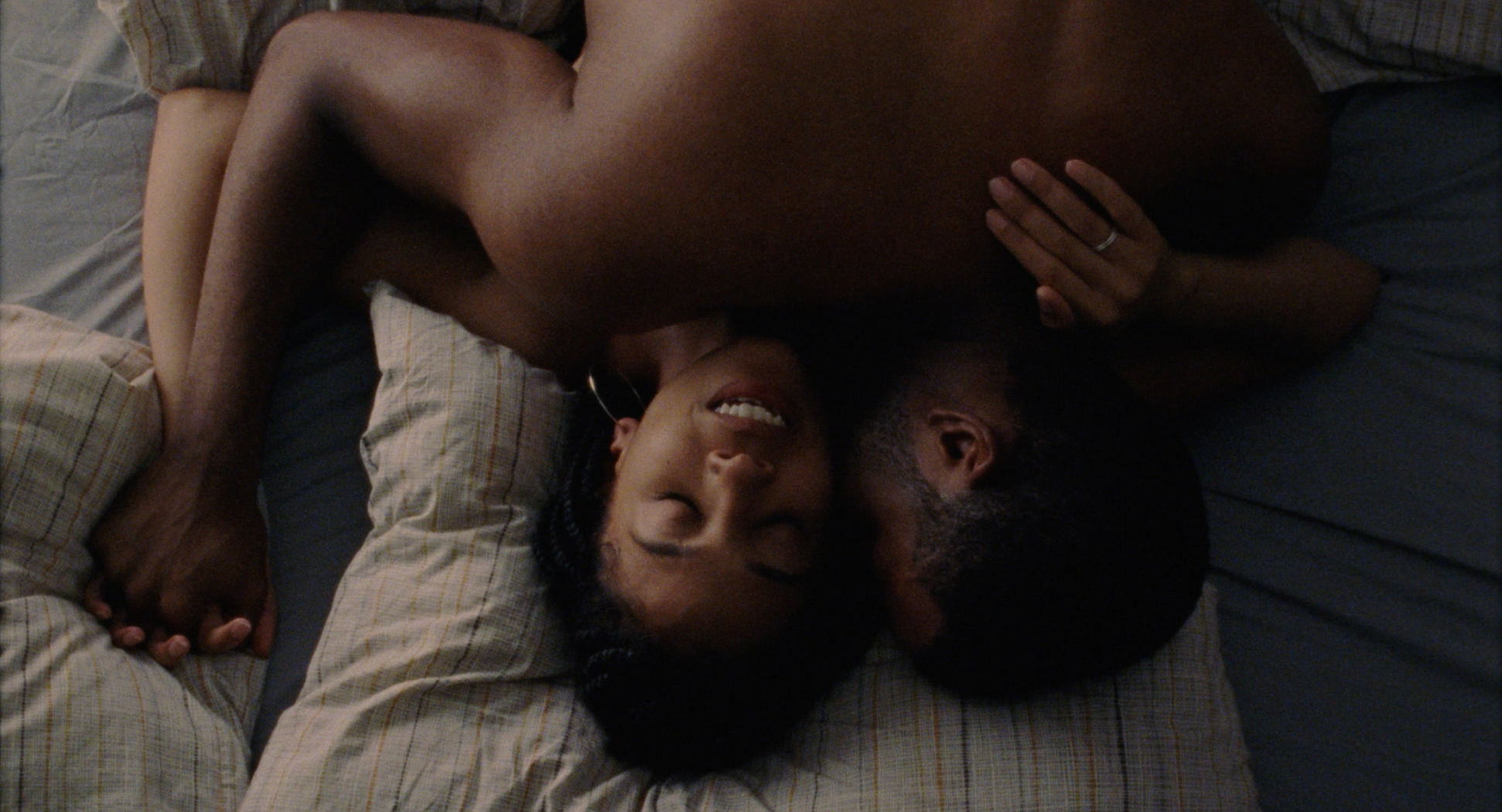
Murtada Elfadl: Congratulations on the film and also at the same time you have a play. This is quite a moment.
ZORA HOWARD: Yes, yes, yes. It is.
What does it mean to have both of these things come out at the same time? Obviously you didn't write them at the same time. You didn't work on them at the same time.
ZORA HOWARD: Yes. So there's Premature that's going to be released this month. And then also right now my play is at the Walkerspace. The really cool thing about that is they're both independent projects that I've been working on for a very long time. That they're both coming to fruition at the same time seems odd, but it feels really good to release them both into the world. When you're working on something over a number of years and you're just tweaking and tweaking but obviously you do it because you want to share it, you want to let it have its wings. And that moment is happening for both the film and the play right now. I'm over the moon. I'm also very tired. I'm so excited. Especially with the play, so excited for the artists that bring that to life every night. My job with that is done. There's nothing else I can do and it belongs to someone else.
You're over the moon, it's a joyful moment, but do you also feel a sense of added responsibility now. Maybe you're on a higher level?
Oh, I don't know. I think I'm still walking on the same level I've been walking on. It'd be news to me. There's obviously anxiety about how these projects will be received. It's just always coming back to why I created them. There's criticism, there's criticism on Premature, there's criticism on Stew and that can shake you. And it has, I'm not above that. I've been shook.
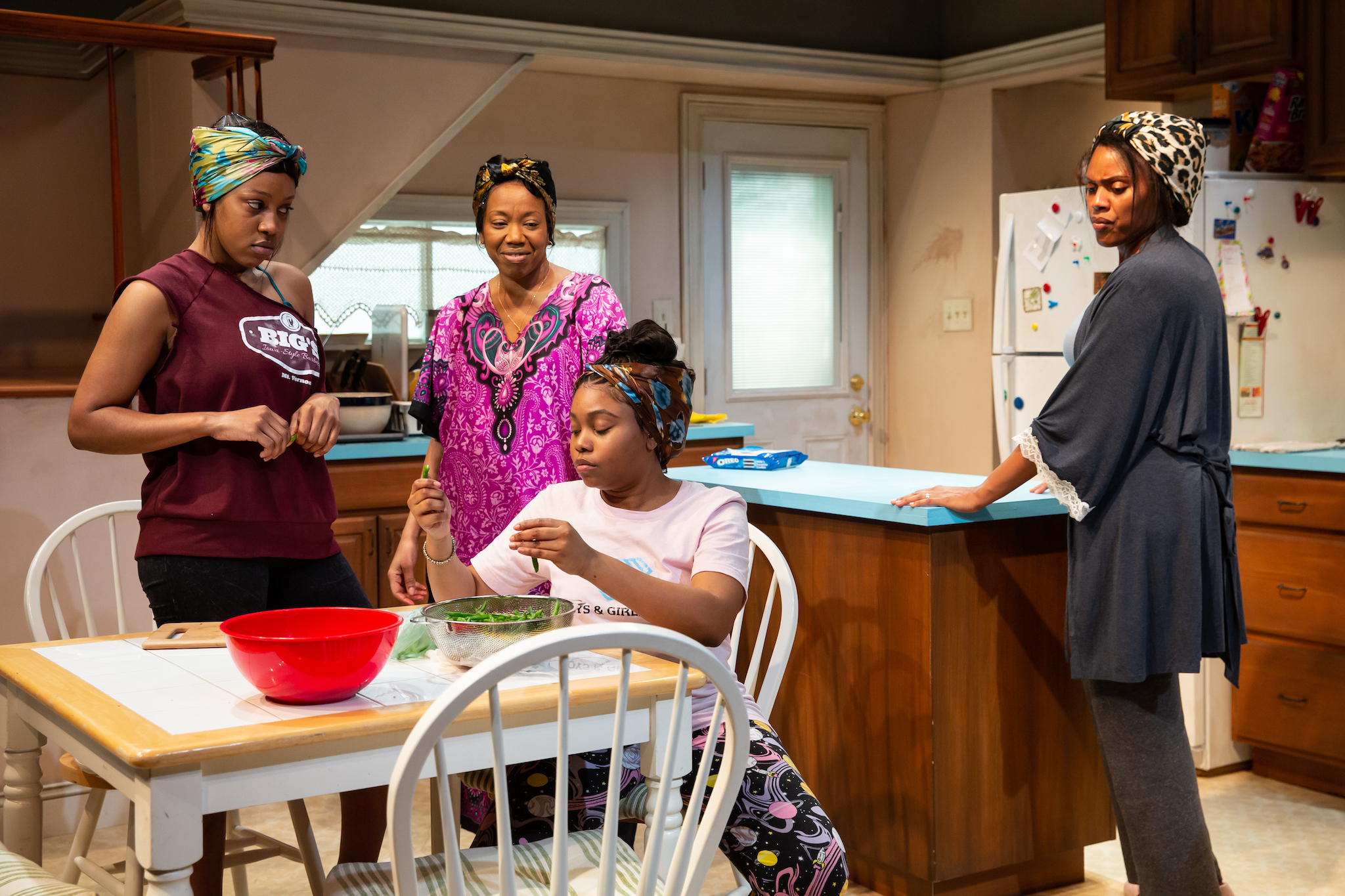 a scene from the play, Stew
a scene from the play, Stew
You read your reviews?
I did with Premature. They were kind of shared with me against my will for Stew. Then I couldn't hold back. I had to read them. If they're not saying 'this is the best thing I've ever seen or ever experienced,' then it's a let down because you want all the reviews to be absolute six star raves and they're not.
A lot of that, of course is coming to terms with it. You don't know the people that are reviewing if this work speaks to them. You don't know what day they had, what life they've had leading up to the moment that they were sitting in that theater. And ultimately you did not write or create this thing for them. That's not why you did it. When I started writing Premature with Rashaad three years ago, we weren't thinking of that. That was not in our minds at all. So to let that be your center.
Just FYI. My review was very positive.
Oh, well thank you very much.
You weren't thinking of critics, but do you think of your audience when you are writing?
Absolutely. For both of them. And we were very, very specific about what that audience was. Premature is a love story. So yes, it is for all because love is universal. First love is universal. Everybody has their story. But we were really talking to black people. This is a black film, this is a black love story. It is set in a black place. We weren't shying away from that. That this is a black love story set in Harlem is the thing. And the same thing for Stew. It's about four black women cooking a meal. In the kitchen. It is the thing. It's not the footnotes. That is the story.
That was gonna be my next question. That this is a story about black people existing without an overt call to systemic racism, is one of the things I loved about it. But it's also set in Harlem. You can't avoid that. Can you talk about finding that balance? Because I think that's very hard. It's a beautiful love story, but also we all still live in this world.
Yes it is a love story. That was always what it was going to be from its inception. We knew that we wanted to write a love story. That being said, it is Ayanna's story. Even above being a love story, it is the story of this young black woman and how she sees the world and how she engages with the world. Isaiah comes along, but there's also her friends and her future and her family. Like you just said, we talk about those things. They do come up. They are there. The intricacies of what it means to be a young black woman growing up in New York City. It will come. It's on the table. We can't avoid it. So there was no way to tell this very black story and not touch on those things and not have whole scenes where those conversations were happening amongst the characters. In terms of that balance, I think, or what had worked for Rashaad and I was staying true to these characters as much as we possibly could. We were inspired by very real people that we know. Real people in our own lives and families. So there was nothing that we were trying to put on top of Premature. We were just letting the characters lead us. That was our North star.
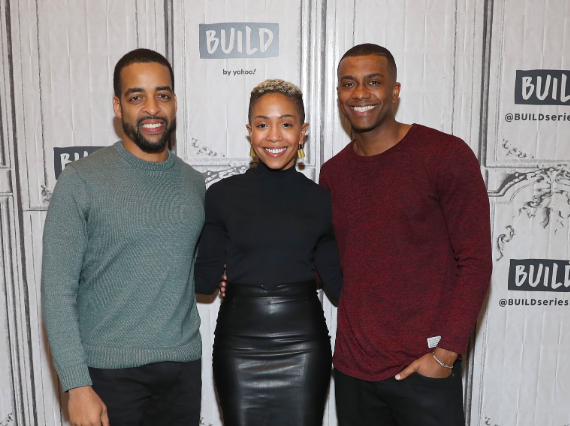 Green, Howard and Boone at a recent press event for Premature
Green, Howard and Boone at a recent press event for Premature
Can you talk about your collaboration with Rashaad? I know this started as a short film years ago. Did you write together? What was the operation like while writing and also while on set?
How about on set? That's different I assume because you are an actor. too.
Yes, I am. Very early on we knew that Rashaad was going to direct, I was going to star in this thing we co-wrote. Because we knew that and that was always our plan. Again, I've worked with him as an actor before him as a director. We both come from the theater world, we understood how those relationships work on a set or in a play. It was important for both of us to kind of honor the role of a director and the role of an actor and the role of a writer. It all has to be based on trust. It's not just me and Rashaad on a set making a film together, it's all of us now. I do believe that to build a team, you really want them to have someone to look to, leadership is important. That there's someone holding them and supporting them and lifting them up so everybody can do their best work. I needed that from Rashaad as an actor. Everybody needed that from him as a director. It was hard at times because I also had my writer brain on. That was not what I wrote. Are you going to check this actor and have them say the right words, please? But really it was just leaning into the trust, which was so necessary. And he had to trust that I was going to be able to lead this film.
Do you think of yourself as an actor first or a writer first or there is no delineation?
No delineation, no first, so much of it is led by heart and spirit. Some projects, I feel very strongly that I want to lead as a writer. Some projects I'm very inspired by somebody else's writing or their vision and I just want to assist in the vision. It is also project based and I'm very grateful that thus far in my career I have been able to be led by the material itself and what role I can best play.
You're not in the play Stew, but are you looking for acting jobs too?
Absolutely. Somebody cast me!
…..a movie I love. It was one of those films that Rashaad and I watched together and meditated on. We watched so many beautiful, wonderful films by all different kinds of people. But anyway, to answer your question I actually actively resisted having poetry in the film. Rashaad knew my writing from many years ago. He knew me as a poet, and was always saying that Ayanna that might be a poet too. I resisted that partly because, like you said, there are few examples of where that was successful on film. Or it doesn't feel like a corny, for lack of a better word, or that that world is being made fun of. Rashaad was understanding and he heard me and there was no poetry in the written script. There was one scene where Isaiah, funnily enough, asks her to read some of her work out loud. So we write the scene up until the point where Ayanna opens her mouth and then cuts to another scene. On set Rashaad asked me to just read something, so we can like have more options with the editing. And I trusted him. Then I saw a rough cut of the film and that whole poem was in the film. And at first I was mortified, but then if I was truly being honest with myself, it was right. It felt right to see Ayanna being a writer. Then actually during the editing process, I wrote more poetry that was brought into the film. So it was in post, wasn't originally in the script.
Oh, wow. I didn't know that.
Yeah. And now I can't imagine the film without it.
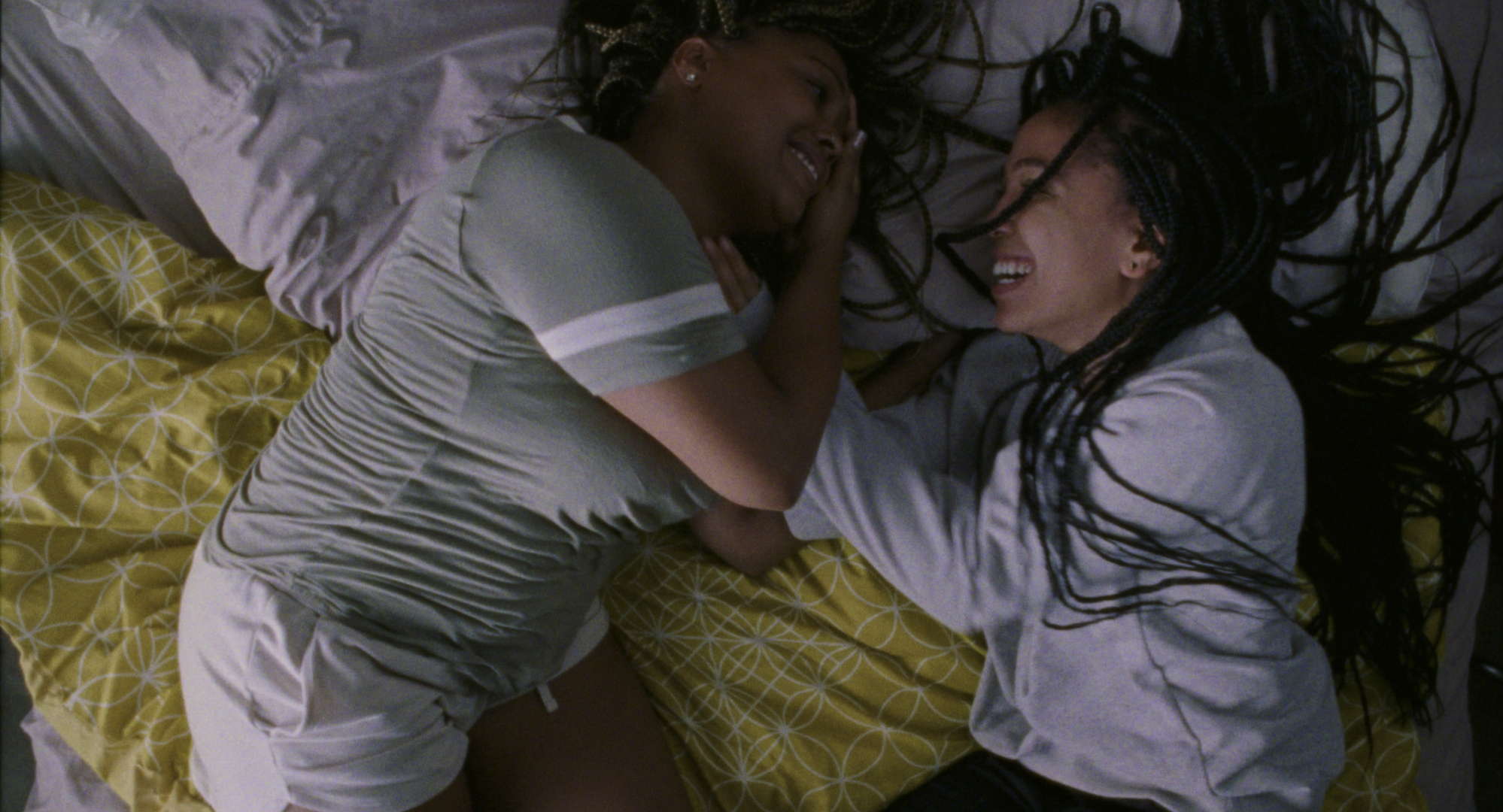
It's one of the things that make it stand out. I love that part of it. We don't see a lot of movies set in Harlem, and in this movie you really see Harlem. In the setting, in the conversations, and in that there are a lot of scenes outside. Can you talk about what inspired you about setting it in Harlem and why was it important for you to depict Harlem in the film?
I'm a Harlem girl through and through. I'm from Harlem, I was raised in Harlem. Home is so much a part of the woman I am today. Rashaad lives in Harlem, we actually live around the corner from one another. This is just a neighborhood that we both love, and we wanted to honor that. But specifically it's a changing neighborhood like so many neighborhoods in this city and across the country. It is a neighborhood that has been heavily gentrified. It's very different from the Harlem that I grew up in. It was just very important to us to immortalize the Harlem that we remember. These neighborhoods are disappearing, they're being replaced by something else. This is a love story and in a lot of ways it's a love letter too, to Harlem.
There are many conversation scenes in the movie. One that really struck me was the one about art and what is put out in the world as opposed to what's happening in our world. How do you feel about that as a writer, as a performer? Do you feel a responsibility to tell certain stories?
Yes. There is a mandate as an artist to create and to reflect truth. But you have to do that in your own way. We can't force the expectation cause then it's not really a reflection of truth. That's in the opposite direction of what I think is so important about the artist's role in society. I'm a little torn. I do think that if you do have that calling that you shouldn't ignore it. Lean into it, take a risk, but how you do that, that is for the artist to choose. Artists are vulnerable, when you're telling the truth and you're reflecting a truth, you're exposed.
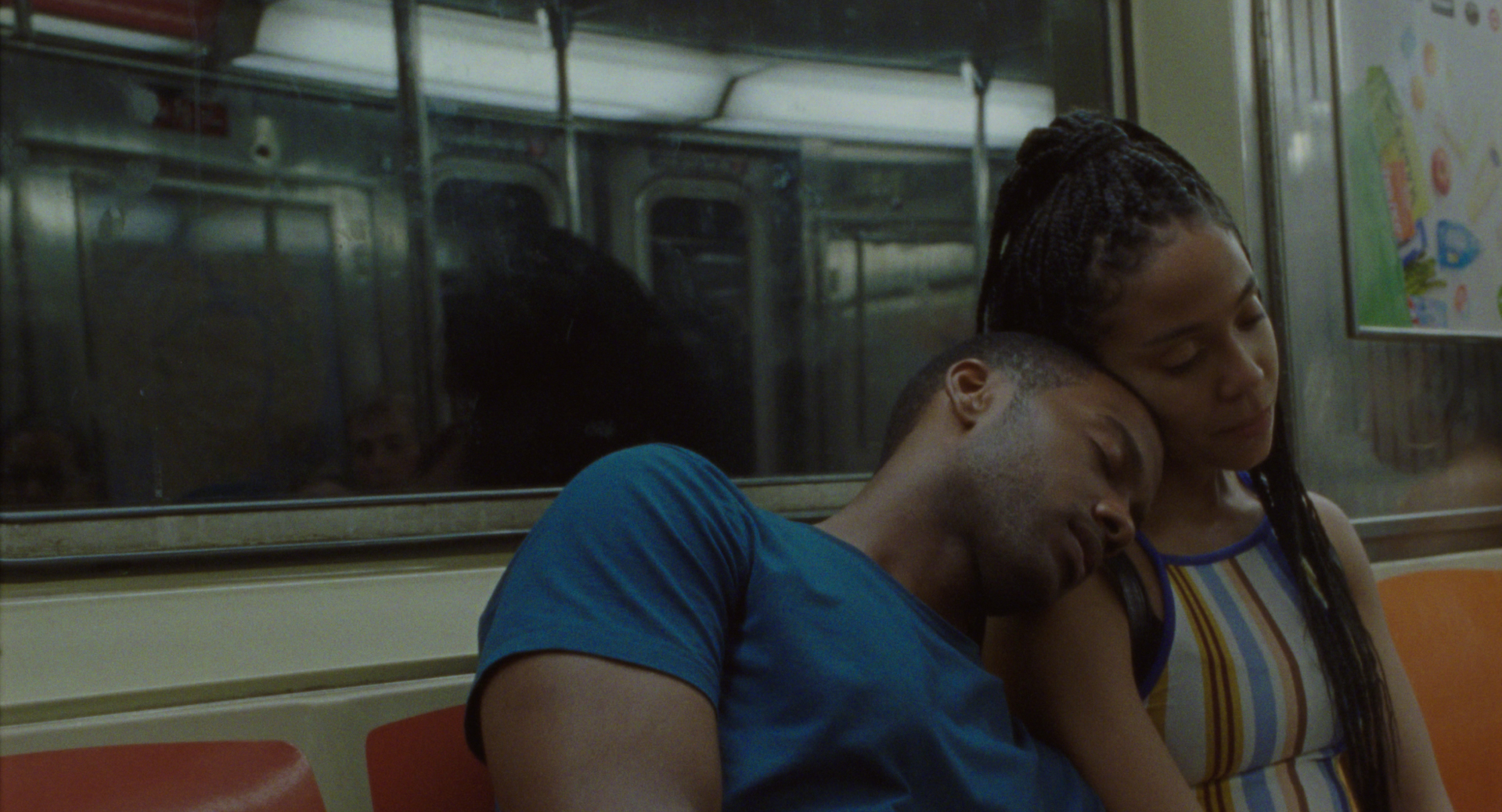
Let's talk more about the love story. To me this was a story about how Ayanna knows that this is not just any other relationship. It's a seismic relationship and it's not going to happen again.
Yeah. Seismic. I like that word.
This is something I don't really see in movies, especially love stories. Different perceptions about a relationship from within the relationship?
Interesting. Audience members who've seen Premature speak to this as well. Ayanna being the younger one in the relationship yet having more foresight, she understands the stakes. She understands how big this love is, even if it's her first time experiencing it, in a way that Isaiah doesn't. I think there is something about a woman's sensibility, that even a young woman coming into herself, she might not be able to name it but she embodies it. She carries it from watching her mother, watching other women in her life. She was able to access a depth of feeling and give herself over to that depth of feeling. In this particular specific story between Ayanna and Isaiah there was something about her that made her more willing to let go and to lean into it and to trust it.
***SPOILER ALERT - skip this if you don't want to be spoiled on one plot element-***
There are many things in this film that I haven't seen in other love stories. We spoke about some of them. However there is one plot element - the pregnancy - that we've seen depicted many times. As a writer how do you try to make different or new something that maybe audiences see coming?
I don't know if that came into the room, in terms of something that we were actively after. Like how are we going to make this different? Because the reason why it crops up, the reason why we see that story so often is because it is a very real one. A woman being faced with that choice will forever be a story to tell. The stakes of that, making that kind of choice at any point in your life. So it wasn't so much about how to make this fresh and new, there's nothing fresh and new about it. But how do we remain true and honest to Ayanna's experience of this. The film is very character driven, what we owed to Ayanna and how she navigated that situation. Then how that reverberated with all the other characters. Isaiah, her mother and her girlfriends. If the thing that is driving that kind of storytelling is keeping it real and specific, honoring what that moment is for a young woman, then we should continue to tell that story. We should continue to see it in many different iterations. It's never an easy thing. As a woman, I know we will always be looking for that experience to be reflected somewhere.
This is inspired by some of your experiences, some of Rashaad's experiences, and you wrote it together. Was it hard sometimes to look back at your experiences or the experience of people you love?
Very hard, and it's still hard. It's hard to sit in the theater and watch it. Rashaad and I, we hope that with this film that love is what shines through and that people walk away feeling no matter what their own story is. That the love is always worth it, no matter the outcome, no matter if you get your heart broken. Ayanna had that summer where she was on the top of the world, was loved so deeply, and learned so much about herself. I wish that for everyone over and over again. Love is transformative and I believe it is the ultimate energy and force that can propel any good thing in the world. Any change, any revolution. And that's why we're always after it, always trying to seek it out. Because when you are in love or feeling loved, you feel like you can do anything and do good. As hard as that was for Ayanna and as hard as it was for me, and as hard as it was for Rashaad, and as hard as it is for everyone, I do wish that we continue to seek it out, because that moment is always worth it.
So is that what you hoped you would audiences take from the movie? That it's worth it.
Absolutely.
Premature opens today 2/21 at IFC CENTER in New York and AND LAEMMLE'S MONICA FILM CENTER in LA and on demand eveywhere. Stew is at Walkerspace in downtown Manhattan through this weekend.